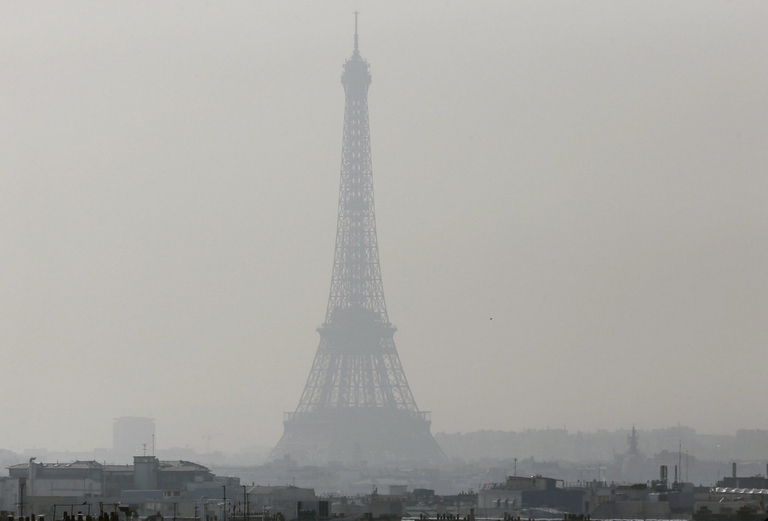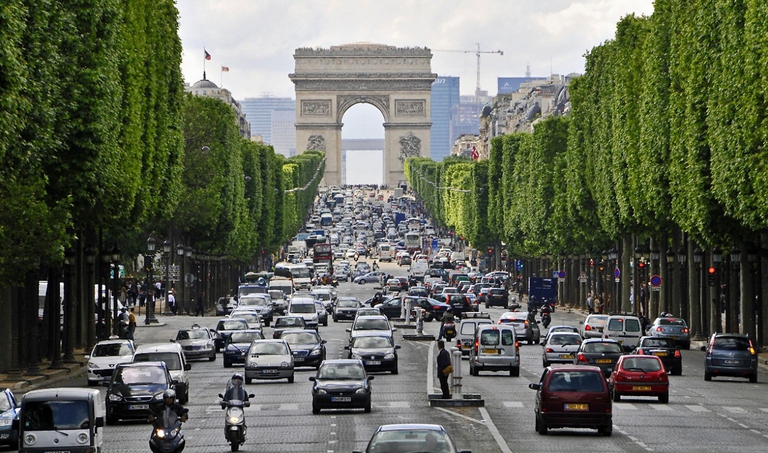
Sharon Lavigne, one of the six winners of the 2021 Goldman Environmental Prize, is fighting to protect her community from plastics corporations.
Commercial vehicles produced before 1997 won’t be allowed in the streets of Paris. The measure, which will come into force on 1 July, is intended to reduce air pollution in the French capital.
In the shade of the Tour Eiffel people don’t want to have to do with black clouds emitted by rusty exhaust pipes and polluting emissions. From 1 July Paris will banish cars made before 1997 strengthening the policy of modernisation of the capital’s car fleet and smog reduction. In the past, thanks to this policy, particularly low speed limits and permanent bans have been imposed locally, for example in the Champs-Élysées, and diesel cars will be completely banned by 2020.
More modern cars are cleaner cars. This is particularly true if we consider that the European emission standards have been encouraging car manufacturers from 1991 to today to drastically reduce the polluting emissions of their vehicles, mostly carbon dioxide and nitrogen oxide. This fact convinced Paris Mayor Anne Hidalgo and the French Environment Ministry led by Ségolène Royal – a candidate for Presidency in 2007 – to ban cars and commercial vehicles produced before 1997. This ban will disallow cars that don’t comply with the Euro 2 regulation, which came into force in 1997.
The measure adopted by the city of Paris is not revolutionary as the Netherlands’ proposal to ban vehicles with traditional engines by 2030 or Norway’s provision to exclusively use electric cars by 2025. But it has something more than the other sustainable projects: concreteness. According to the daily Les Echos, indeed, the ban will come into force on 1 July and will be implemented from 8 a.m. to 8 p.m. except for weekends. And that’s not all. The cars that will run in the streets of the Ville Lumière must also have specific stickers on the windscreen, similar to the Swiss highway tickets, that certify the compliance with one of the six European standards for emissions.
Commercial cars and vehicles made before 1997 will be banned with no exceptions. Motorcycles created before 1 June 1999 will also fall under this measure, which impose a fine of 35 euros to rule-breakers in the first period, and then 68 euros. Fines will be given from 1 October. This is a revolution for Paris that, especially in the last five years, has had record-breaking levels of air pollution and limited traffic according to even and odd numbers of license plates. From 1 July something could change.
Siamo anche su WhatsApp. Segui il canale ufficiale LifeGate per restare aggiornata, aggiornato sulle ultime notizie e sulle nostre attività.
![]()
Quest'opera è distribuita con Licenza Creative Commons Attribuzione - Non commerciale - Non opere derivate 4.0 Internazionale.
Sharon Lavigne, one of the six winners of the 2021 Goldman Environmental Prize, is fighting to protect her community from plastics corporations.
Plastic pollution is airborne too. Microplastics are being carried across continents by the wind, as a recent study reveals.
Levels of particulates in New Delhi in 2020 were once again far above safety thresholds, with extremely serious health consequences for its citizens.
A major oil spill in the Ecuadorian Amazon in April has left the Coca River polluted. The indigenous Kichwa are suing the companies whose pipelines broke.
Molecules that eat up plastic waste, including PET bottles, may soon become widely used as scientists leap ahead in developing new super enzymes.
In Italy’s Land of Fires between Naples and Caserta, activists like Carmen Medaglia are fighting to promote new ways of managing waste.
Toxic substances in Kamchatka’s waters have killed 95% of marine fauna and caused health problems for surfers. The causes, however, are still unknown.
A Magellanic penguin was found lifeless on a Brazilian beach: in its stomach, an N95 face mask. Researchers believe the animal died from ingesting it.
The drop in air pollution during worldwide lockdowns helped prevent thousands of premature deaths. But the situation is returning to pre-crisis levels.









